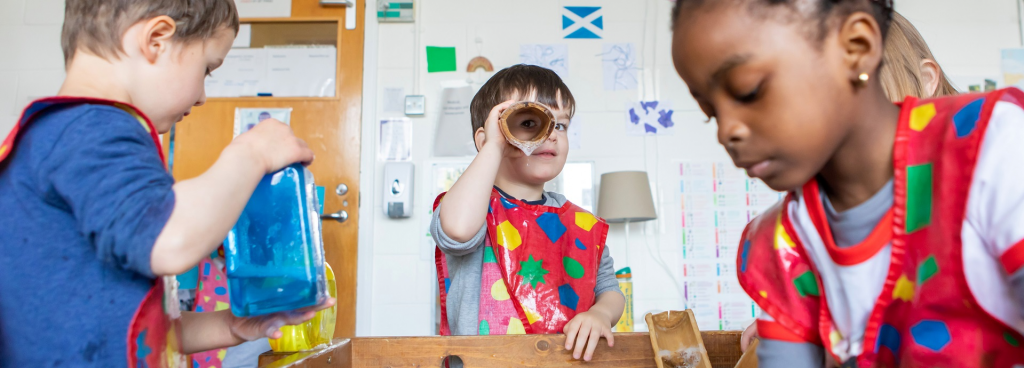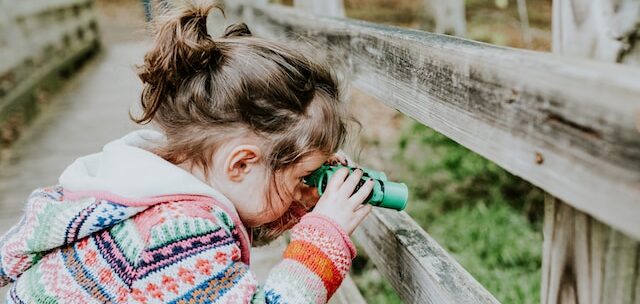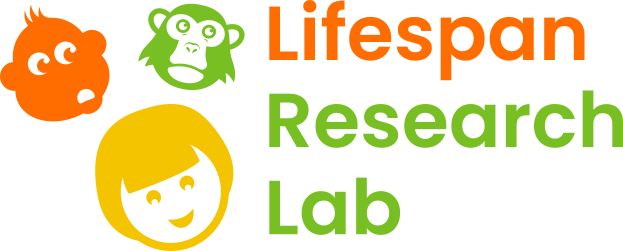Current Projects
-
What’s in the box?

PhD student Lauren Taylor is currently running a study about the link between counterfactual thinking (thinking of how making a different decision could have caused a different current reality) and episodic memory (memories of the past).
-
Do children need language to change their beliefs?

Dr Kirsten Blakey and the ARED project team will soon begin a new study investigating how children form and revise beliefs and whether this is related to their language development. Children aged between 2 and 6 years old are invited to take part by visiting the Lifespan Lab and playing some fun games.
-
How do we choose?

Dr Lily FitzGibbon is currently running a study about children’s decision making. Children aged between 4 and 8 are invited to take part by visiting the Lifespan Lab and playing a fun game on the computer. Find out more about the study here. Please note that data collection will resume during the October half-term break.
Outputs
Journal Articles
2025
Soldati A, Fedurek P, Dezecache G, Muhumuza G, Hobaiter C, Call J, Zuberbühler K (2025) Social and individual factors mediate chimpanzee vocal ontogeny. Scientific Reports, 15:8529. https://doi.org/10.1038/s41598-025-93207-x
Fedurek P, Girard-Buttoz C, Tkaczynski JP, Hobaiter C, Zuberbühler K, Wittig RM, Crockford C (2025) Maternal gregariousness and female audience effects mediate mother-infant proximity in wild chimpanzees. Animal Behaviour, 123156. https://doi.org/10.1016/j.anbehav.2025.123156
2023
Tkaczynski PJ, Mafessoni F, Girard-Buttoz C, Samuni L, Ackermann CY, Fedurek P, Gomes C, Hobaiter C, Löhrich T, Manin V, Preis A, Valé PD, Wessling EG, Wittiger L, Zommers Z, Zuberbuehler K, Vigilant L, Deschner T, Wittig RM & Crockford C (2023) Shared community effects and the non-genetic maternal environment shape cortisol levels in wild chimpanzees. Communications Biology, 6 (1). https://doi.org/10.1038/s42003-023-04909-9
2022
Blakey KH, Atkinson M, Rafetseder E, Renner E & Caldwell CA (2022). Taking account of others’ goals in social information use: The development of 3- to 7-year-old children’s ability. Journal of Experimental Child Psychology, 215, 105325. https://doi.org/10.1016/j.jecp.2021.105325
Blakey KH, Renner E, Atkinson M, Rafetseder E, & Caldwell, CA (2022). Children transition from simple associations to explicitly reasoned social learning strategies between age four and eight. Scientific Reports, 12, 5045. https://doi.org/10.1038/s41598-022-09092-1
Caes L, Wallace E, Duncan C & Dick B (2022) The Role of Executive Functioning in Understanding Chronic Pain Experiences in Adolescence: A Pilot Multi-Method Study. Medical Research Archives, 10 (12). https://doi.org/10.18103/mra.v10i12.3361
Desai NP, Fedurek P, Slocombe KE & Wilson ML (2022) Chimpanzee pant‐hoots encode individual information more reliably than group differences. American Journal of Primatology, 84 (11), Art. No.: e23430. https://doi.org/10.1002/ajp.23430
Soldati A, Muhumuza G, Dezecache G, Fedurek P, Taylor D, Call J & Zuberbühler K (2022) The Ontogeny of Vocal Sequences: Insights from a Newborn Wild Chimpanzee (Pan troglodytes schweinfurthii). International Journal of Primatology.
2021
Blakey KH, Rafetseder E, Atkinson M, Renner E, Cowan-Forsythe F, Sati SJ & Caldwell CA (2021). Development of strategic social information seeking: Implications for cumulative culture. PLOS One, 16(8): e0256605. https://doi.org/10.1371/journal.pone.0256605
Dunstone J, Atkinson M, Grainger C, Renner E & Caldwell CA (2021) Limited evidence for executive function load impairing selective copying in a win-stay lose-shift task. PLOS ONE, 16 (3), Art. No.: e0247183.
Girard-Buttoz C, Tkaczynski PJ, Samuni L, Fedurek P, Gomes C, Löhrich T, Manin V, Preis A, Valé PF, Deschner T, Wittig RM & Crockford C (2021) Early maternal loss leads to short- but not long-term effects on diurnal cortisol slopes in wild chimpanzees. eLife, 10, Art. No.: e64134.
Nicholson T, Williams DM, Lind SE, Grainger C & Carruthers P (2021) Linking metacognition and mindreading: Evidence from autism and dual-task investigations. Journal of Experimental Psychology: General, 150 (2), pp. 206-220.
